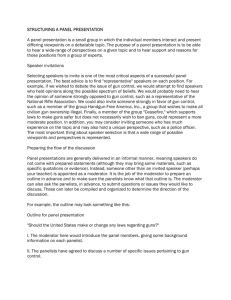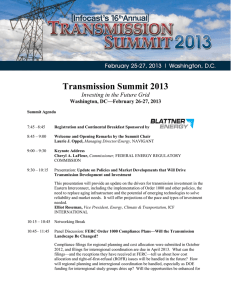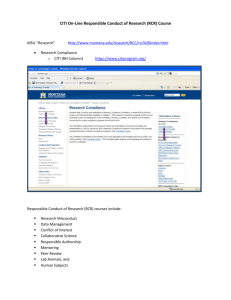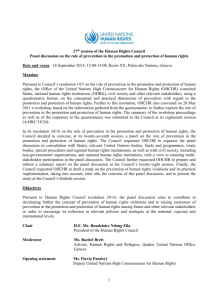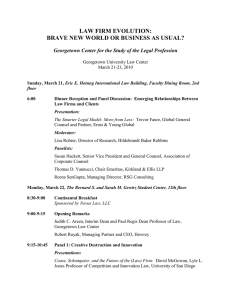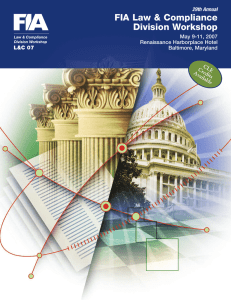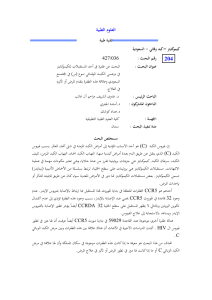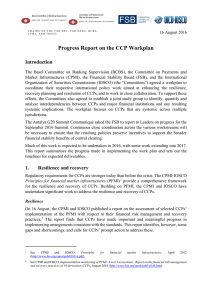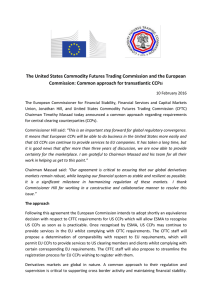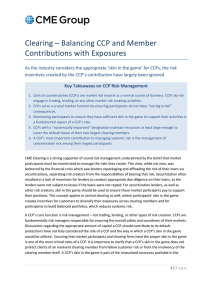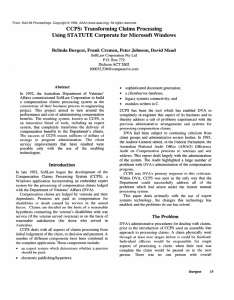The Financial Industry in a Post-Crisis World Symposium
advertisement
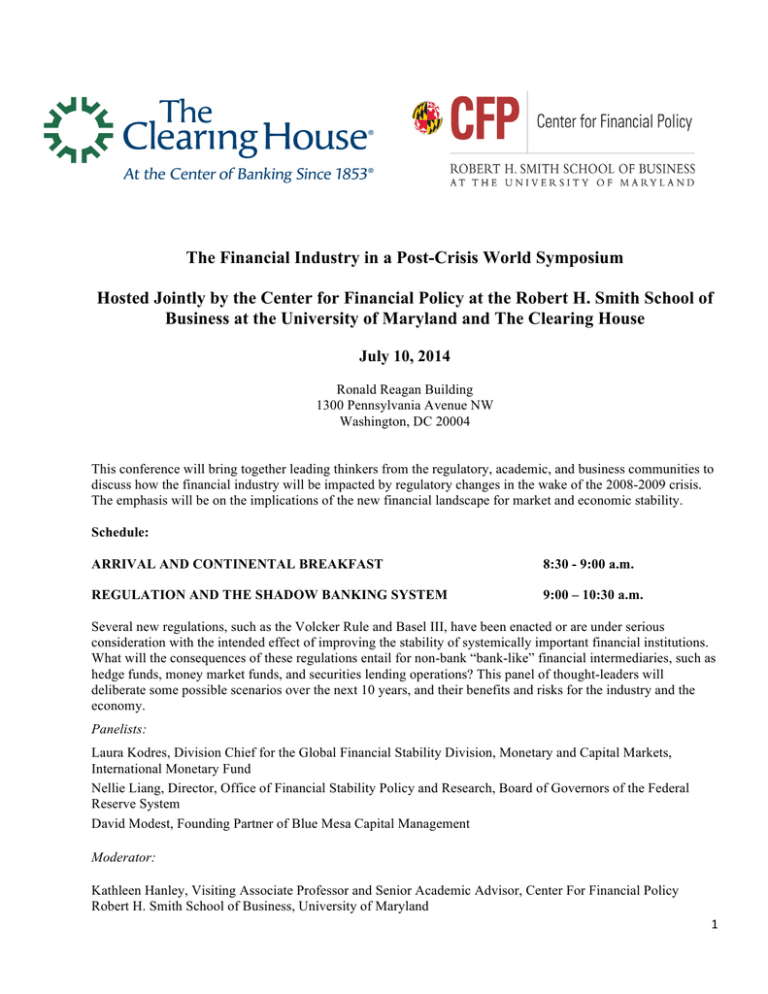
The Financial Industry in a Post-Crisis World Symposium Hosted Jointly by the Center for Financial Policy at the Robert H. Smith School of Business at the University of Maryland and The Clearing House July 10, 2014 Ronald Reagan Building 1300 Pennsylvania Avenue NW Washington, DC 20004 This conference will bring together leading thinkers from the regulatory, academic, and business communities to discuss how the financial industry will be impacted by regulatory changes in the wake of the 2008-2009 crisis. The emphasis will be on the implications of the new financial landscape for market and economic stability. Schedule: ARRIVAL AND CONTINENTAL BREAKFAST 8:30 - 9:00 a.m. REGULATION AND THE SHADOW BANKING SYSTEM 9:00 – 10:30 a.m. Several new regulations, such as the Volcker Rule and Basel III, have been enacted or are under serious consideration with the intended effect of improving the stability of systemically important financial institutions. What will the consequences of these regulations entail for non-bank “bank-like” financial intermediaries, such as hedge funds, money market funds, and securities lending operations? This panel of thought-leaders will deliberate some possible scenarios over the next 10 years, and their benefits and risks for the industry and the economy. Panelists: Laura Kodres, Division Chief for the Global Financial Stability Division, Monetary and Capital Markets, International Monetary Fund Nellie Liang, Director, Office of Financial Stability Policy and Research, Board of Governors of the Federal Reserve System David Modest, Founding Partner of Blue Mesa Capital Management Moderator: Kathleen Hanley, Visiting Associate Professor and Senior Academic Advisor, Center For Financial Policy Robert H. Smith School of Business, University of Maryland 1 IDENTIFYING RISKS IN CENTRAL CLEARING 10:45 – 12:15 p.m. Given the G20 mandate that all standardized derivatives contracts become centrally cleared, central counterparties (CCPs) will play an increasingly key role in our financial system. Given the size of the derivatives market and the structure of CCPs, there are significant systemic risks that may develop. Without appropriate risk management policies CCPs can, under conditions of extreme market duress, impose significant additional strains on capital and liquidity, destabilizing already stressed markets. This panel will explore the growth of central clearing, with an emphasis on which existing risks are being addressed and what new risks are being created. The panel will also consider the ways that these new risks can be appropriately managed and prevented today. Panelists: Peter Curley, Associate Director, Clearance and Settlement, Division of Trading and Marketing, Securities and Exchange Commission Senthil Kumar, Chief Risk Officer, Institutional Clients Group, Citi Pat Parkinson, Managing Director, Promontory Financial Group Moderator: Evan Picoult, Managing Director, Franchise Risk Architecture, Citi and Adjunct Professor, Columbia Business School LUNCH 12:30 – 2:00 p.m. Keynote Speaker: Richard Berner, Director, Office of Financial Research, U.S. Department of The Treasury POST-CRISIS CHANGES IN BANK BALANCE SHEETS 2:00 – 3:30 p.m. After the 2008-2009 financial crisis, major international banks have been going through a dramatic shift in the composition of their balance sheets. This panel will discuss the changes that are taking place – on the asset and liability side – with two major questions in mind. First, are these changes being driven by new regulations, a revised risk appetite on the part of banks, or a combination of both? Second, particular attention will be paid to the implications these changes have for the stability of financial markets and for credit creation in the real economy. Panelists: Christopher Mazingo, Principal, McKinsey & Company Patricia Kao, Acting Director, Office of Financial Institutions Policy, U.S. Department of The Treasury Debbie Toennies, Managing Director, Office of Regulatory Affairs, JPMorgan Chase & Co. Moderator: Sri Iyer, Senior Vice President and Director of Research, The Clearing House Financial support for the conference generously provided by Citi 2

